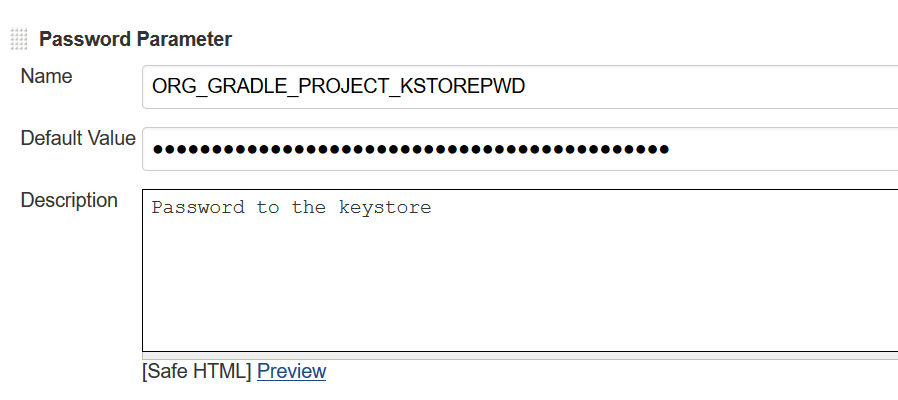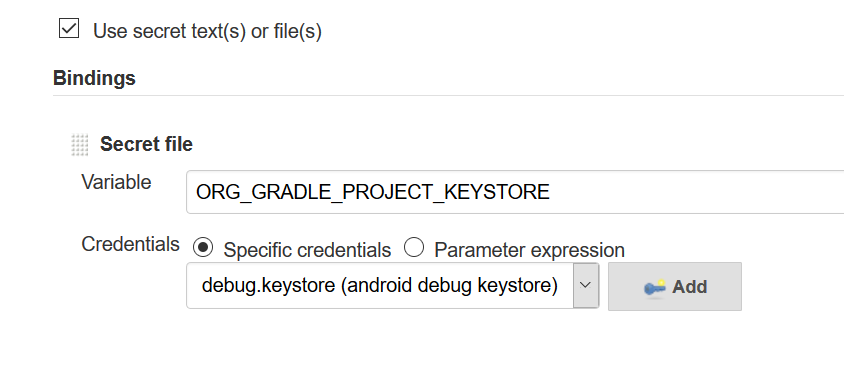I'm following guideline how to sign Android apk with Jenkins. I have parametrized Jenkins job with KSTOREPWD and KEYPWD. A part of Jenkins' job configuration (Build->Execute shell) is to take those parameters and store them as environment variables:
export KSTOREPWD=${KSTOREPWD}
export KEYPWD=${KEYPWD}
...
./gradlew assembleRelease
The problem is when the build is over anybody can access the build "Console Output" and see what passwords were entered; part of that output:
08:06:57 + export KSTOREPWD=secretStorePwd
08:06:57 + KSTOREPWD=secretStorePwd
08:06:57 + export KEYPWD=secretPwd
08:06:57 + KEYPWD=secretPwd
So I'd like to suppress echo before output from export commands and re-enable echo after export commands.


